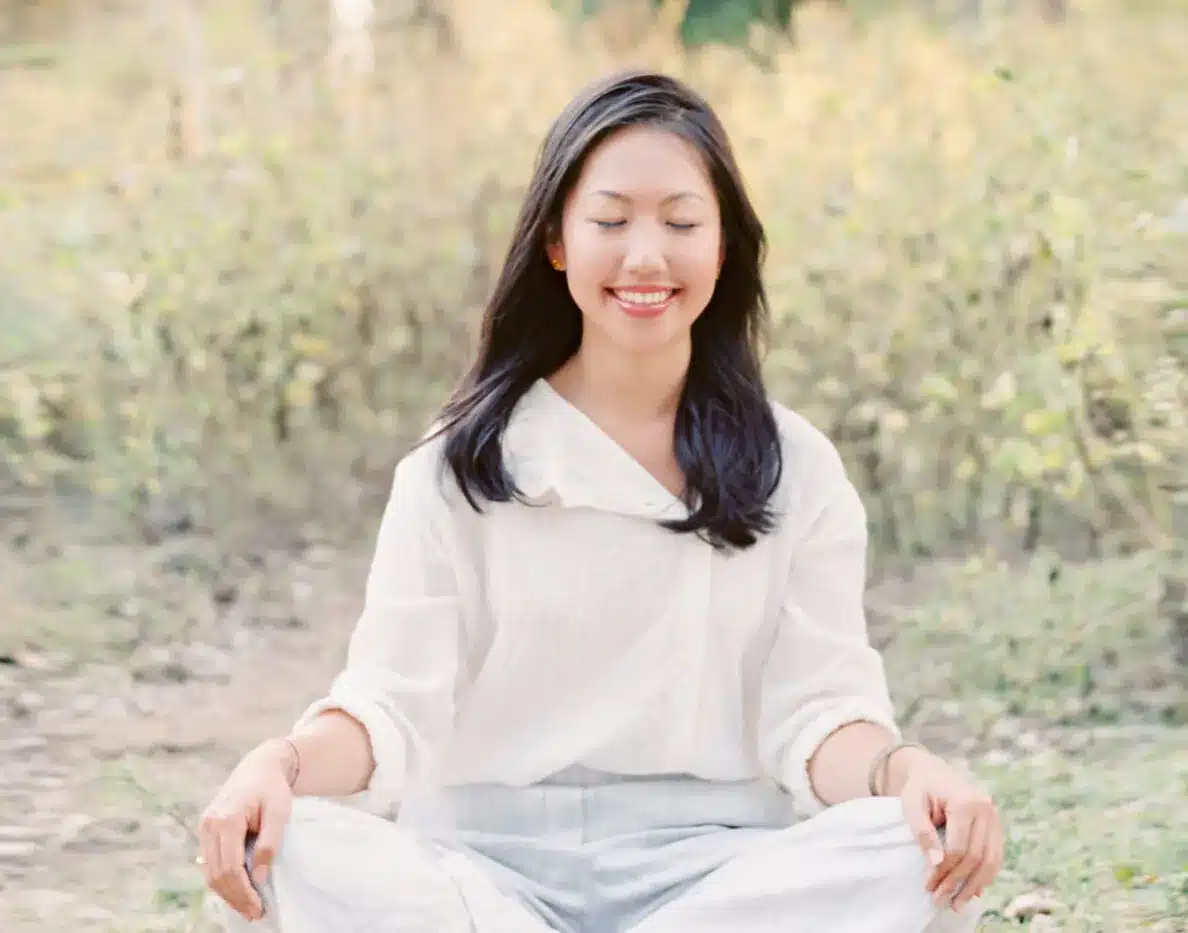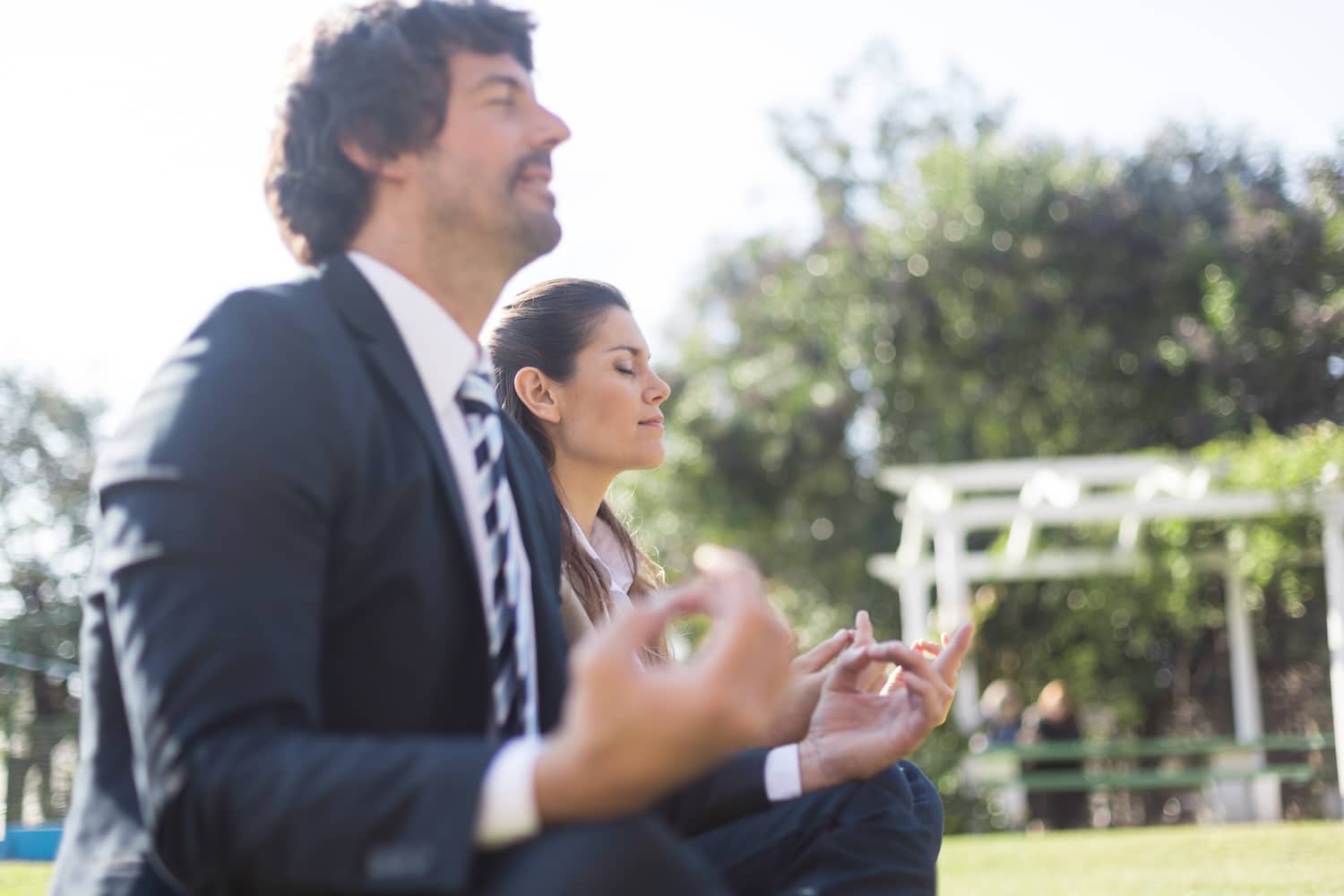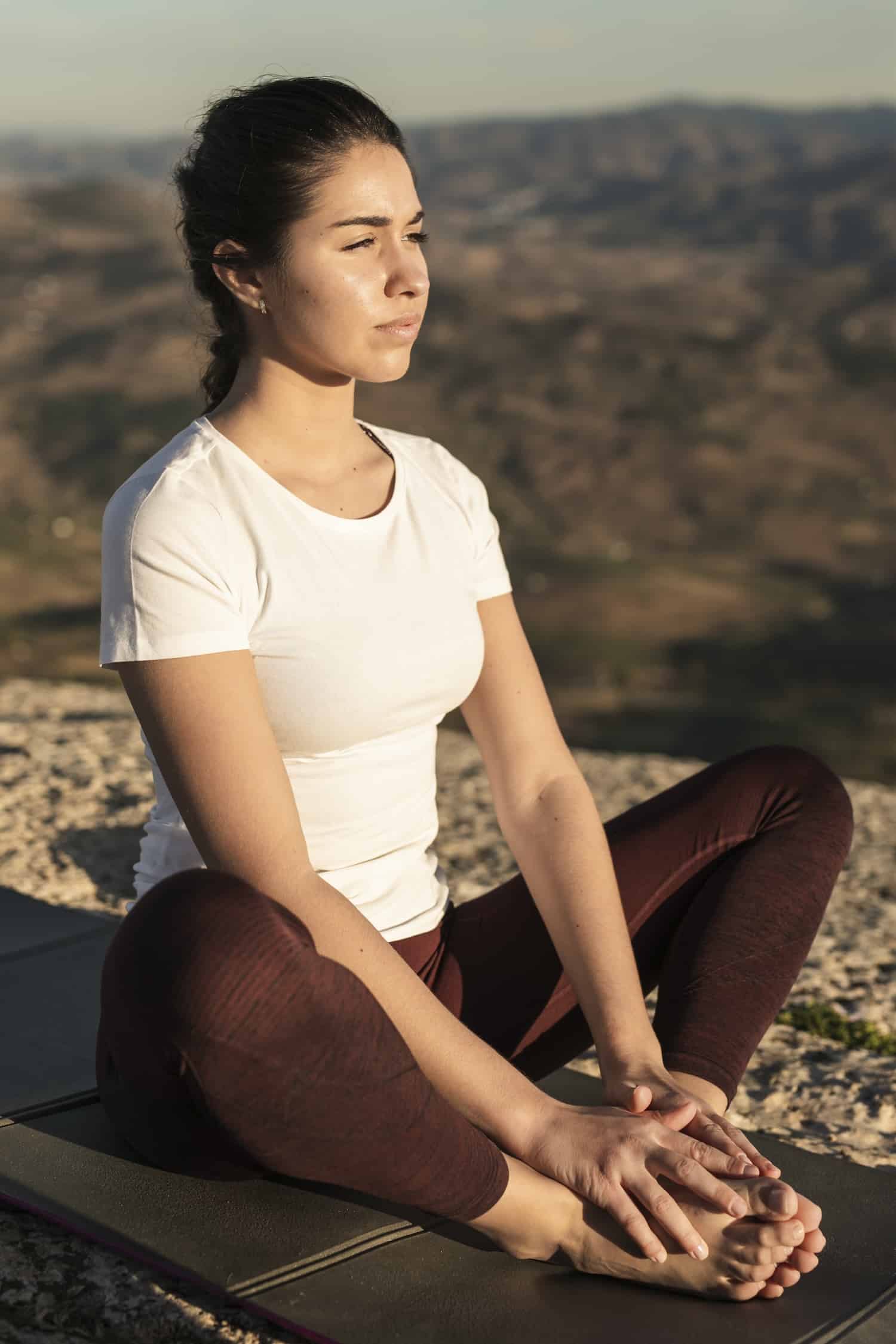Incorporating Rounding into Your Self-Care Routine: 3 Key Steps
As we go through our days and check things off our to-do lists, it’s easy to neglect our personal wellness. But taking time for self-care practices such as yoga, breathwork, and meditation can have profound benefits for our physical, mental, and emotional health.
In this article, we’ll cover three kinds of wellness practices and introduce a technique from the Veda that incorporates all three, called Rounding. Then you’ll see the three steps to integrate Rounding into your wellness routine.
The Importance of Self-Care
Self-care is not selfish; it’s a necessity for maintaining balance and overall well-being. In our increasingly busy lives, it’s essential to incorporate a personal wellness plan that nourishes our mind, body, and soul.
Why is personal wellness important? Consider these statistics:

Start your Meditation Journey Today
BOOK A FREE INTRO TALKMental Health Improvement
According to a survey by the American Psychological Association (APA), COVID-19 left a mark on the country’s mental health. Even though people say they’re doing okay, the numbers show a different picture.
There’s been a jump in health problems, especially for those in their mid-thirties to mid-forties. They’re also more stressed about money and the economy compared to before the pandemic. Despite all this, 47% of the people surveyed wished they had help dealing with their stress.
Engaging in self-care activities such as exercise, meditation, or spending time in nature can significantly reduce stress levels and improve mental health.
Physical Health Benefits
The Mayo Clinic reports that chronic stress can lead to a variety of health problems including, digestive problems, heart disease, weight gain, and more.
Engaging in regular physical activity, getting enough sleep, and eating a balanced diet are essential components of self-care that can help prevent and manage these health conditions.
Quality of Life Enhancement
A study at ScienceDirect found that individuals who practice self-care activities, such as spending time with loved ones , and being in a positive environment , reported higher levels of life satisfaction and overall happiness.
Let’s look at three different kinds of personal wellness examples in a self-care routine.

1. Yoga for Self-Care
Yoga is a powerful practice that integrates physical postures, breathwork, and meditation to promote holistic well-being. Research has shown that regular yoga practice can lower cortisol levels, decrease anxiety, and improve overall mood.
What we call yoga in the West is different from the original tradition. It arose from the Vedas, the 5,000+ year-old texts from which so much of Indian culture and practices originated.
As Vedic Meditators, we incorporate gentle yoga asanas on retreats alongside breath and meditation. One of many helpful personal wellness activities, Yoga can be practiced at home or in a studio setting as a self care practice as well.
2. Breathwork for Self-Care
Conscious breathing techniques, known as breathwork, offer a powerful tool for reducing stress and promoting relaxation. By focusing on the breath, we can calm the nervous system, quiet the mind, and cultivate a sense of inner peace. Deep breathing techniques such as diaphragmatic breathing and alternate nostril breathing can help alleviate tension and promote emotional well-being.
3. Vedic Meditation for Self-Care
Vedic Meditation is a unique technique that allows the meditator to effortlessly transcend thought. Studies have shown that meditation can reduce symptoms of anxiety and depression, improve sleep quality, and enhance overall well-being.
Within the Vedic tradition, there is a form of self care that incorporates breathing techniques, yoga asanas, and meditation for the deepest relaxation and stress relief.
Let’s talk about Rounding Retreats and Rounding practices as excellent personal wellness examples.

Introducing Vedic Rounding: Unlocking Inner Balance and Well-Being in 4 Steps
Vedic Rounding, often referred to simply as a “Round,” is a holistic practice that combines gentle yoga asanas, pranayama breathing techniques, and Vedic Meditation. Unlike the vigorous physical yoga commonly seen in the West, Vedic Rounding focuses on gentle bending and stretching movements accessible to individuals of all ages and flexibility levels.
Each round typically begins with about 10 minutes of gentle yoga asanas. Asanas are followed by a few minutes of pranayama breathing exercises. The Sanskrit word “prana” translates to life force, and “yama” means to administer. Pranayama involves consciously directing the breath to calm the mind and prepare the body for meditation.
After completing the meditation session, practitioners typically lie down in a comfortable supine position for a few minutes to further integrate the experience. It’s essential to receive proper instruction in Vedic Rounding from a qualified teacher. Attempting to practice rounding without proper guidance can lead to ineffective results and potential discomfort.
Rounding Retreats: A Powerful Self-Care Ritual
Rounding is often practiced during weekend retreats or intensive workshops, allowing participants to engage in multiple rounds over several days. This extended practice of rounding helps to systematically lower the body’s excitation level, promoting deep relaxation and stress release. Under the supervision of a qualified teacher, participants can safely explore heightened states of consciousness and experience profound inner transformation.
It’s crucial to practice rounding in a dedicated environment under the guidance of a qualified teacher. Attempting rounding in a domestic setting or without proper supervision can lead to interruptions and disruptions, hindering the effectiveness of the practice. With proper instruction and guidance, Vedic Rounding can be a transformative practice for anyone seeking to enrich their lives and unlock their full potential.
Schedule Regular Rounding Retreats as a Vedic Meditator: 3 Steps
There are several steps to incorporate Rounding into your wellness routine:
- Once you take the Learn to Meditate course with a qualified instructor, you’re eligible to sign up for any in-person Rounding Retreat as often as you like.
- Sign up for a Rounding Retreat with a qualified teacher.
- Receive your ‘going home’ program at the retreat to integrate 1 Round per day into your routine, or as many as your instructor recommends.
Rounding Retreats are often referred to as ‘industrial strength meditation’ because they can release up to six months of stress in a few days’ time. This is why it’s so important and beneficial to schedule Rounding Retreats several times per year, to nurture regular rest far beyond the rest a beach trip or a good night of sleep could provide. Rounding Retreats and Vedic Meditation courses offer excellent personal wellness plan examples, since they address the cause of unwellness at its root through stress release.
Schedule an Intro Talk with Susan to ask your questions about Vedic Meditation, self care, and Rounding. You can see her upcoming events schedule here, to register for a Learn to Meditate Course or a Rounding Retreat.






